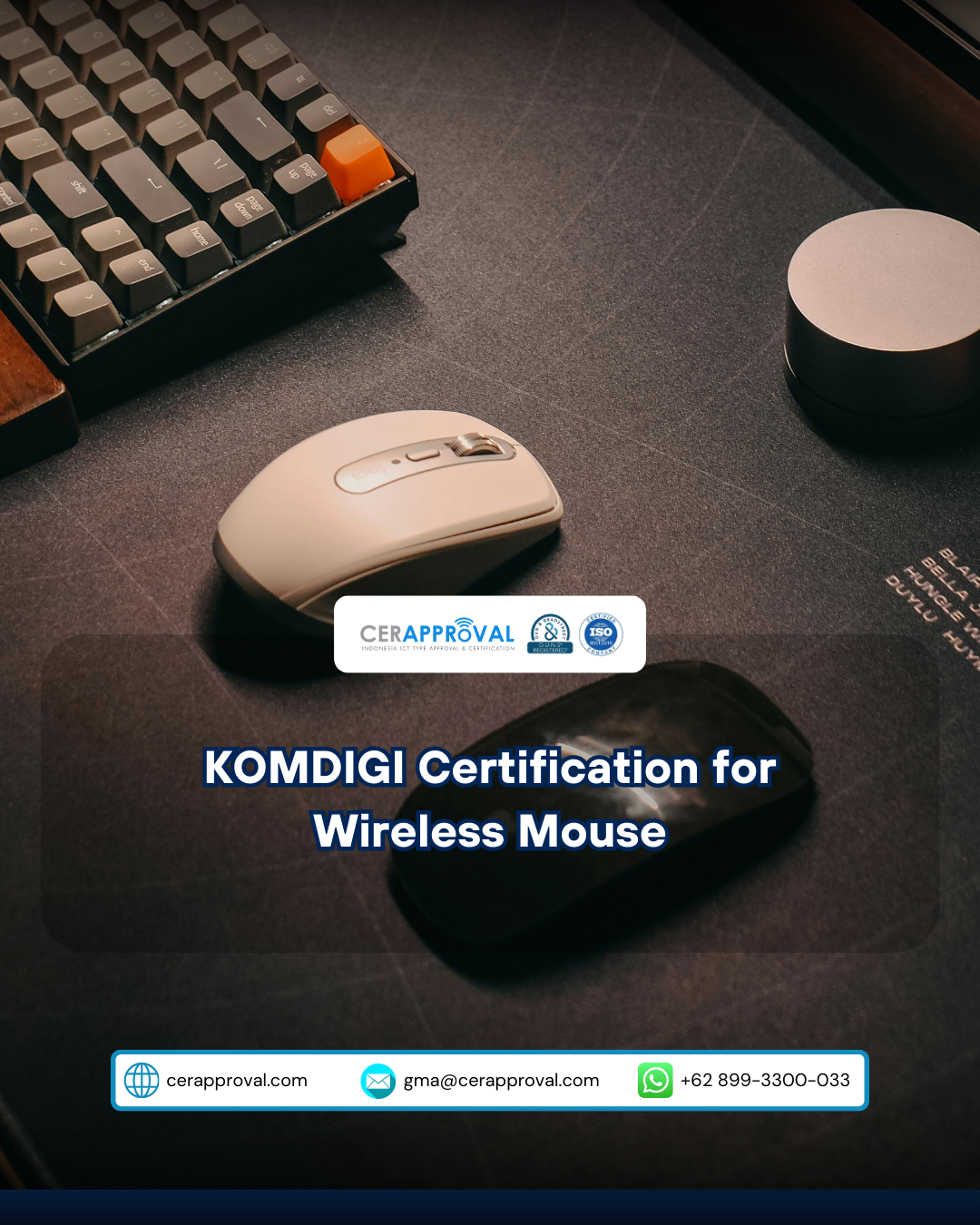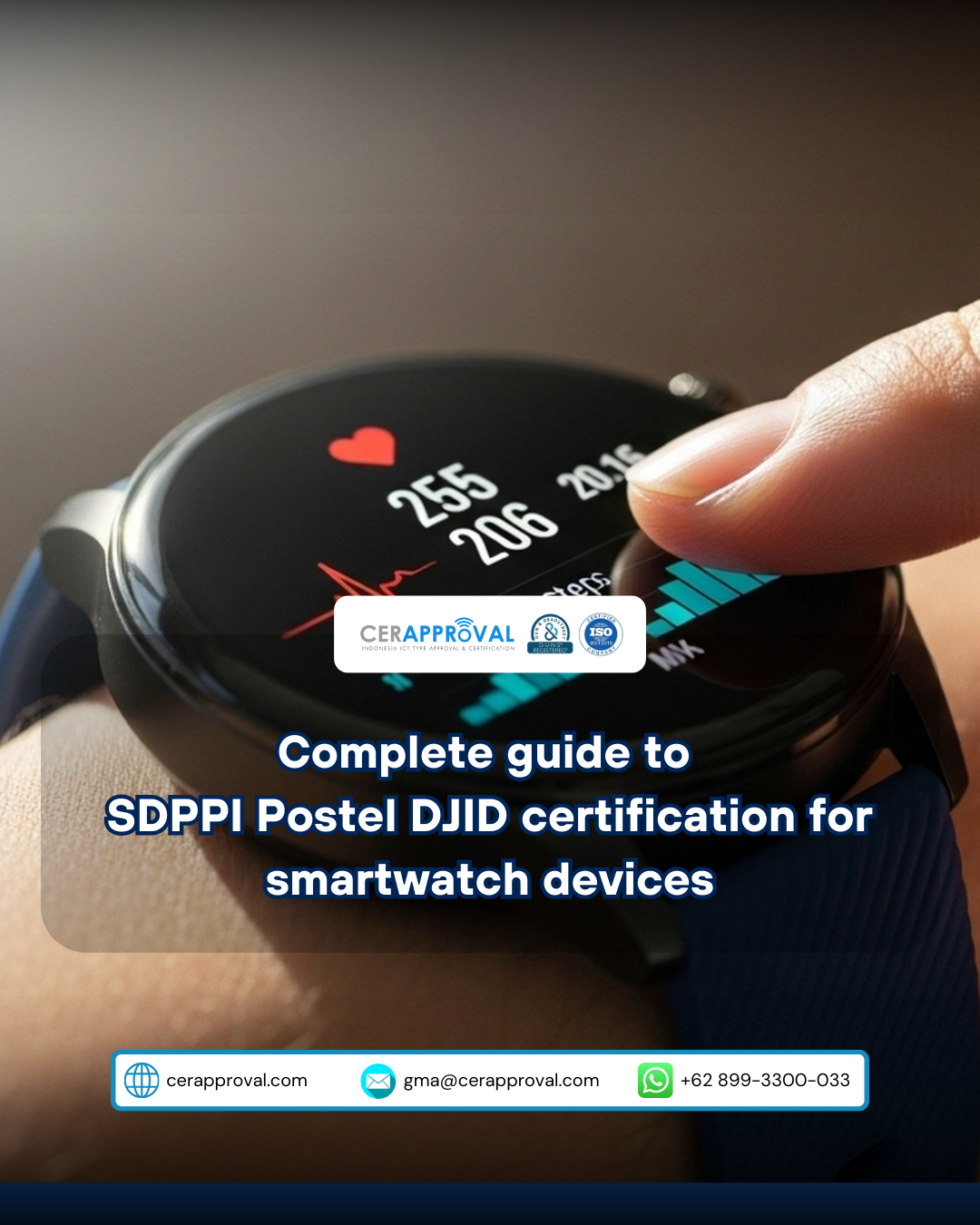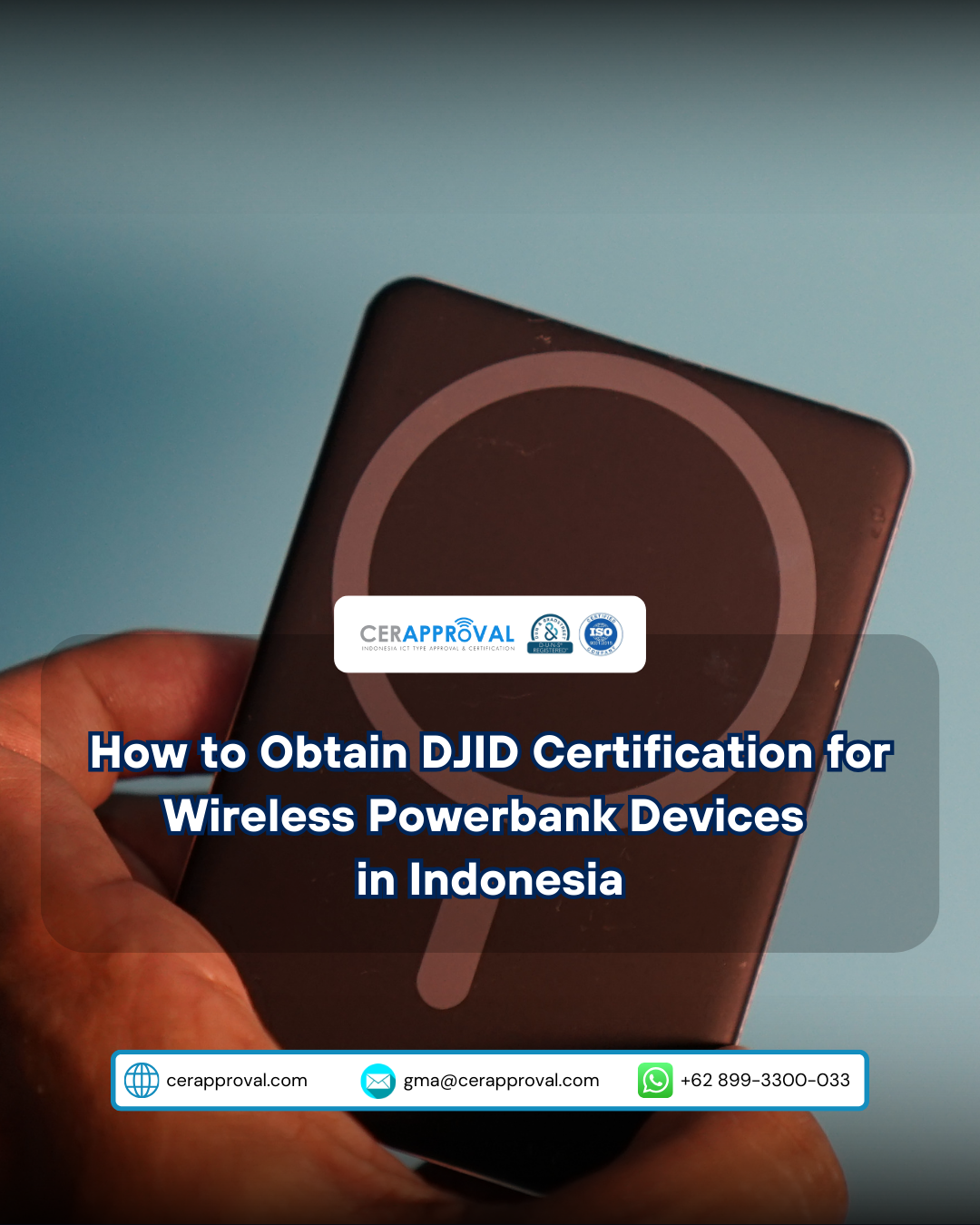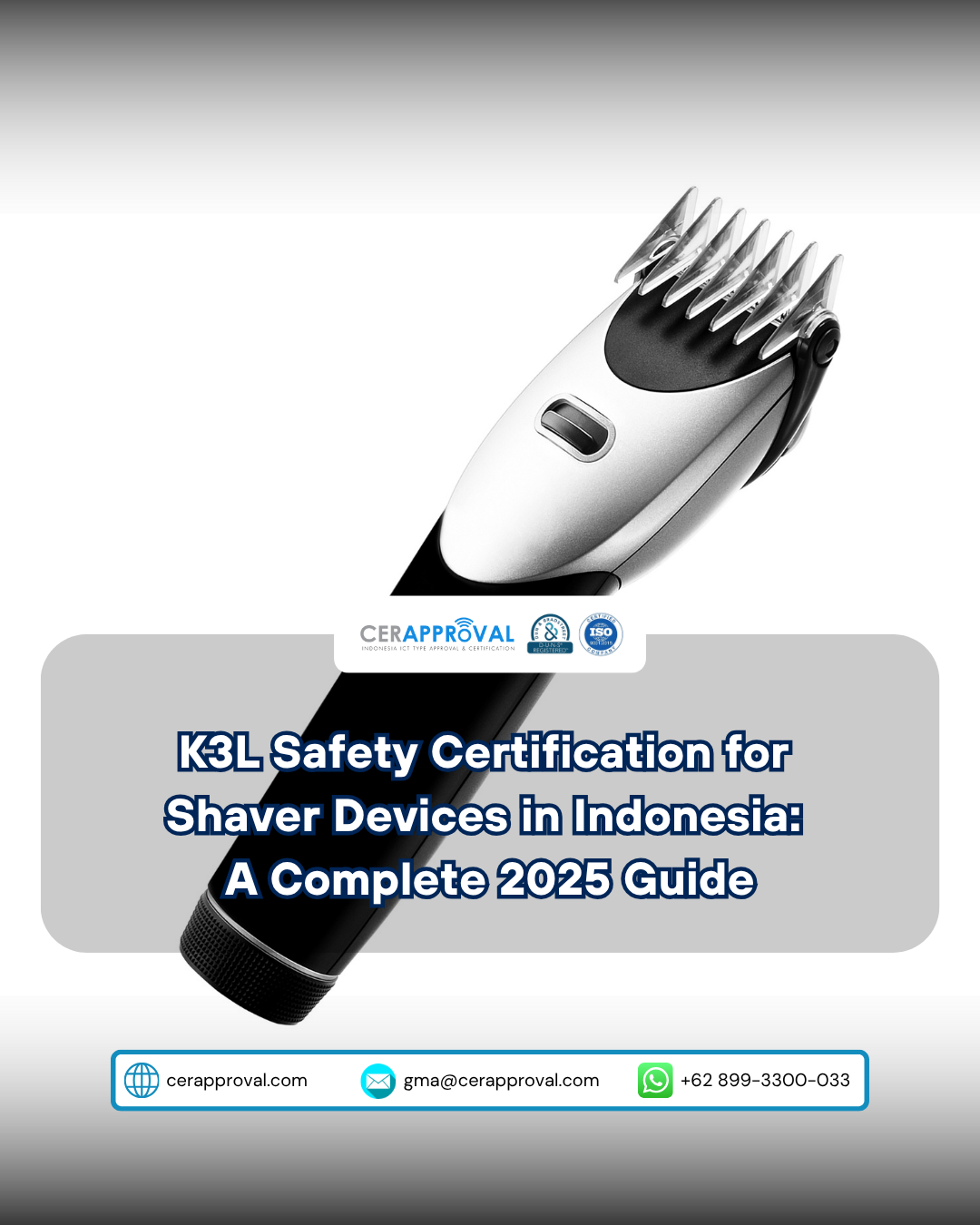

The Wayang Office Plaza, 5th Floor
Jl. Kedondong No. 5A, RT.11/RW.9
Rawamangun, Pulo Gadung
East Jakarta, DKI Jakarta 13220
Indonesia

Telp: +6221 388-590-01
WhatsApp: +62 899-3300-033
WhatsApp SNI: +62 857-7042-1713

Opening : Mon – Fri, 8:00 – 16:00
Author: Admin
-

KOMDIGI Certification for Wireless Mouse
Introduction Computer mouse devices especially wireless mouse and Bluetooth mouse contain radio frequency components that fall under Indonesia’s telecommunication device regulations. Before entering the Indonesian market, these products must obtain the Postel Certification, now officially known as SDPPI DJID Certification by the Ministry of Communication and Digital Affairs (Komdigi) As a certification agency, Cerapproval provides…
-

SNI Certification for Blender Products in Indonesia: A Complete Guide for Manufacturers & Importers
The demand for household electronic appliances, including blenders, has grown significantly in Indonesia. Because blenders involve mechanical and electrical components that operate at high speed, they must meet strict national safety requirements. One of the most essential regulatory requirements is the SNI (Indonesian National Standard) Certification for blender products. For manufacturers and importers, understanding the…
-

Dashcam Certification in Indonesia (DJID SDPPI KOMDIGI)
Dashcams are becoming increasingly common in Indonesia due to the growing need for trip documentation, driver safety, and visual evidence during accidents. For personal vehicles and commercial fleets, dashcams play a crucial role in supporting safety and operational efficiency. This article explains what a dashcam is, how to use it, and how to obtain official…
-

SDPPI Certification for Smartwatch Devices
Smartwatches have become increasingly popular in Indonesia as they support daily activities such as fitness monitoring, smart notifications, and health tracking. However, before entering the market, all smartwatch products must obtain DJID/SDPPI Postel certification to ensure they meet Indonesia’s technical and safety standards. Why Smartwatches Need DJID/SDPPI Certification A smartwatch is classified as a telecommunication…
-

SNI Certification for Electric Irons in Indonesia: How to Obtain and Prepare It
In Indonesia, electric irons are classified as high-risk household electronic appliances and therefore must comply with the SNI (Indonesian National Standard) before entering the market. This mandatory certification ensures that each product meets strict criteria for safety, durability, and electrical performance. For manufacturers, importers, and brand owners, obtaining SNI Certification is essential to distribute products…
-

SNI Certification for Head Units in Indonesia: Complete 2025 Guide
The demand for automotive Head Units has grown significantly as modern vehicles increasingly rely on digital infotainment systems. Navigation, connectivity, entertainment, and advanced vehicle integration make Head Units essential components in both OEM and aftermarket products. However, many manufacturers and importers still overlook the importance of regulatory compliance, especially the requirement for SNI (Indonesian National…
-

How to DJID Certification of Powerbank Devices in Indonesia
DJID certification for powerbank devices in Indonesia is an essential requirement for manufacturers and importers who intend to distribute their products legally. As the demand for portable power solutions continues to increase, the Indonesian government enforces strict safety and quality standards to protect consumers. DJID certification ensures that powerbank devices meet the required technical criteria…
-

How to Obtain SNI Certification for UN3077 Outsourced Bag in Indonesia
UN3077 Outsourced Bags are widely used for packaging environmentally hazardous materials during transportation. In Indonesia, these products must meet the national quality standard through SNI Certification before being circulated or imported. This article provides a comprehensive explanation of the certification process, required documents, testing procedures, and how Cerapproval can support manufacturers and importers in complying…
-

How to Get DJID Certification for Gaming Controllers in Indonesia
Gaming controllers today are equipped with advanced wireless features such as Bluetooth, Wi-Fi, NFC, and other radio technologies. Because of this, they fall under Indonesia’s mandatory DJID Certification (SDPPI device certification), which ensures the device complies with the technical and safety standards set by the Ministry of Communication and Informatics (Komdigi).. As a certification agency…
-

K3L Safety Certification for Shaver Devices in Indonesia: A Complete 2025 Guide
Indonesia’s electrical appliance market continues to grow, driven by increased consumer demand for grooming and personal care products. Among these, electric shaver devices remain one of the most widely used items in households. Due to their direct contact with the skin and dependence on electrical power, shavers are considered high-risk consumer products. To ensure consumer…
Ready To Start New Project With Intrace?
Lorem ipsum dolor sit amet, consectetur adipiscing elit, sed do eiusmod tempor incididunt ut labore et dolore magna aliqua.
